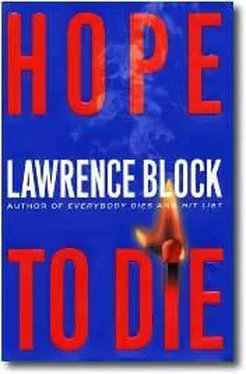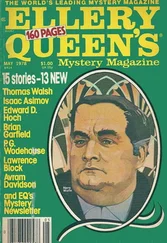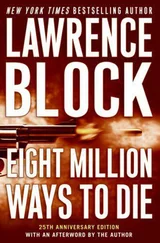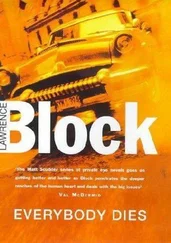"And you've had it a lot lately?"
I nodded. "And I have a feeling it's always the same dream."
"The one you had the other night, and did remember."
"That or a variation on it. I don't have any evidence of this, but I'm not sure 'dream' and 'evidence' belong in the same sentence to begin with."
"She dies and there's nothing you can do."
"She dies and there's nothing I can do, she's dead and I should have done something."
"Do you remember the feeling that went with it?"
"What you'd expect, I guess. Helplessness, guilt. A desire to do something and a complete inability to think of anything to do."
After a moment she said, "There really wasn't anything you could do."
"I know that."
"Or anything you should have done. You didn't even know she was ill, and how could you? Nobody told you."
"No."
"But I suppose it goes back farther than that, doesn't it?"
"Thirty years," I said, "or whenever it was that I walked out."
"Still blame yourself?"
I shook my head. "Not really. I did all the crap they teach you in AA, I sorted it out, I made amends. I'm not proud of every decision I made during the drinking years, if you can even call them decisions. But I don't have trouble living with any of it, and I wound up in the right place. Sober, and married to the right woman."
"But sometimes you think you should have stayed married to the wrong one."
"No, I don't think that."
"Not that you'd be happier, or better off. But that it would have been the right thing to do."
"Maybe when I'm dreaming," I said. "Not when my mind's working. It's just…"
"Everything," she supplied.
"She died," I said, "out of the blue, and that was a shock, and then the funeral, and the happy horseshit afterward with Michael and Andy. Did I tell you about the bar where I met the two of them?"
"Bowls full of miniature Hershey bars."
"That's the one. I wanted a drink."
"I would have wanted a candy bar."
"I didn't have a drink," I said, "or think seriously about it. But the desire was as strong as it's been in a while."
"Part of the deal, isn't it? And you didn't have a drink, and that's what counts."
"I know."
"That's why you're looking into what happened to the Hollanders, isn't it?"
"One way or another," I said. "I needed something to do. And if I were inclined to play amateur psychologist- "
"Which God knows you're not."
"Which I trust God knows I'm not, I'd say I was reenacting my dream, trying to save Susan Hollander when it was already too late."
"Just her?"
"Hell, make it both of them. I'm reliving my childhood and trying to save both my parents. Do you like that better?"
"I shouldn't have interrupted."
"Psychology aside," I said, "I let T J talk me into going uptown to see that girl because I didn't have anything better to do. And I needed something to do. We saw her and evidently put her mind at rest, and you'd think I would have put my own mind to rest in the process."
"But you didn't."
"I went and looked at the house," I said, "and that didn't tell me anything new. And T J printed out the news stories for me, and pulled some other stuff off the Web, and that didn't tell me much, either."
"But you stayed with it."
"I did."
"Because it was something to do."
"I guess so."
"And now you're done?"
"Not yet.
"You're staying with it? Because it's something to do?"
I shook my head. "Because it's something that ought to be done," I said, "and who else is going to do it? The cops closed the case."
"And they shouldn't have?"
"I'm not saying they were wrong," I said. "But I don't think they got the whole story."
I called Iverson in the morning and left a message, and around eleven he called me back. "I was thinking about something you said," I told him. "How they carried everything back with them, the silverware and all."
"We recovered it," he said, "down to the last oyster fork."
"You happen to know how they made the trip?"
"Made the trip?"
"Did either of them have a car?"
"Not that Motor Vehicles knows about," he said. "You saw the apartment, remember? And I told you how it was furnished. Bierman was lucky if he had a spare pair of jeans. How was he gonna have a car?"
"So how did they get back to Brooklyn?"
"How'd you come out here? The D train, isn't that what you said?"
"Somehow the idea of those two carrying a couple of sacks of stolen goods on the subway…"
"No, though God knows it wouldn't be the first time somebody did. Always a chance they flagged a gypsy cab, although that's not so easy in Manhattan, is it?"
"No."
"So what's most likely is they stole a car. Hot-wired one, if they knew how, or found one with the keys in it. Drove it to the job, so it was there waiting for them when they came out. Then drove it home."
"Did you recover a stolen car in the neighborhood?"
There was a pause, and he sounded a few degrees cooler when he said, "I don't believe so, no."
"I wonder what happened to it."
"If they left the keys in it," he said, "the odds are some other mope stole it, and drove it to some other precinct where it became somebody else's problem. Or how long did they have it, a couple of hours? Maybe they put it back where they found it, or close enough, and the owner never even knew it was gone."
"Maybe."
"You trying to make something out of this, Scudder?"
"I was just wondering."
"Yeah, and it's got me wondering myself. What are you trying to accomplish here, anyway?"
"Just trying to get a clear picture," I said.
"A clear picture. What it sounds like, you're poking here, poking there, next thing you're saying we fucked this up, we didn't look hard enough for the car."
"That's not what I'm saying at all."
"In the first place," he said, "it stopped being our case the minute we ID'd the chest of sterling. All the same, we went ahead and pursued our end of the investigation. You think we didn't look for the vehicle?"
"No, I think you probably did."
"You're damn right we did, looked good and thorough for it. And we checked stolen car reports. We did everything we were supposed to do, including things nobody would have blamed us if we hadn't done them, because the fucking case was over and done with. We did this a hundred percent right."
"That's exactly what I was hoping to hear," I said.
"How's that?"
"Suppose there was a third man," I said. "The driver, drove them to Manhattan, waited for them, drove them back."
"And?"
"And dropped them off in front of the house on Coney Island Avenue and then got rid of the car. Lost it in another part of town, if it was stolen. Or, if it was his own car, found a place to park it."
"Ran it through a car wash, if he had any sense."
"Meanwhile, Bierman and Ivanko are in the apartment, and Bierman shoots Ivanko."
"For reasons which remain to this day unclear."
He sounded a little like W. C. Fields, and his tone told me we were friends again. "And likely to remain that way," I said, "barring the discovery of a dying message."
"Morse code. Dots and dashes, gnawed into the floorboards by the dying Ivanko."
"Maybe that's why he bolts the door," I went on. "So the third man won't come back in the middle of things."
"Or he shoots Ivanko on impulse, and then he bolts the door while he figures out what he's gonna do next."
Or so the driver wouldn't walk in on him while he was doing it, I thought. Or bolting the door was automatic, something he always did when he entered the apartment, because he felt safer that way.
"A third man," Iverson said. "I see where you're coming from here, and it does a lot to explain the car we never found, but do you have anything to back it up with?"
Читать дальше












